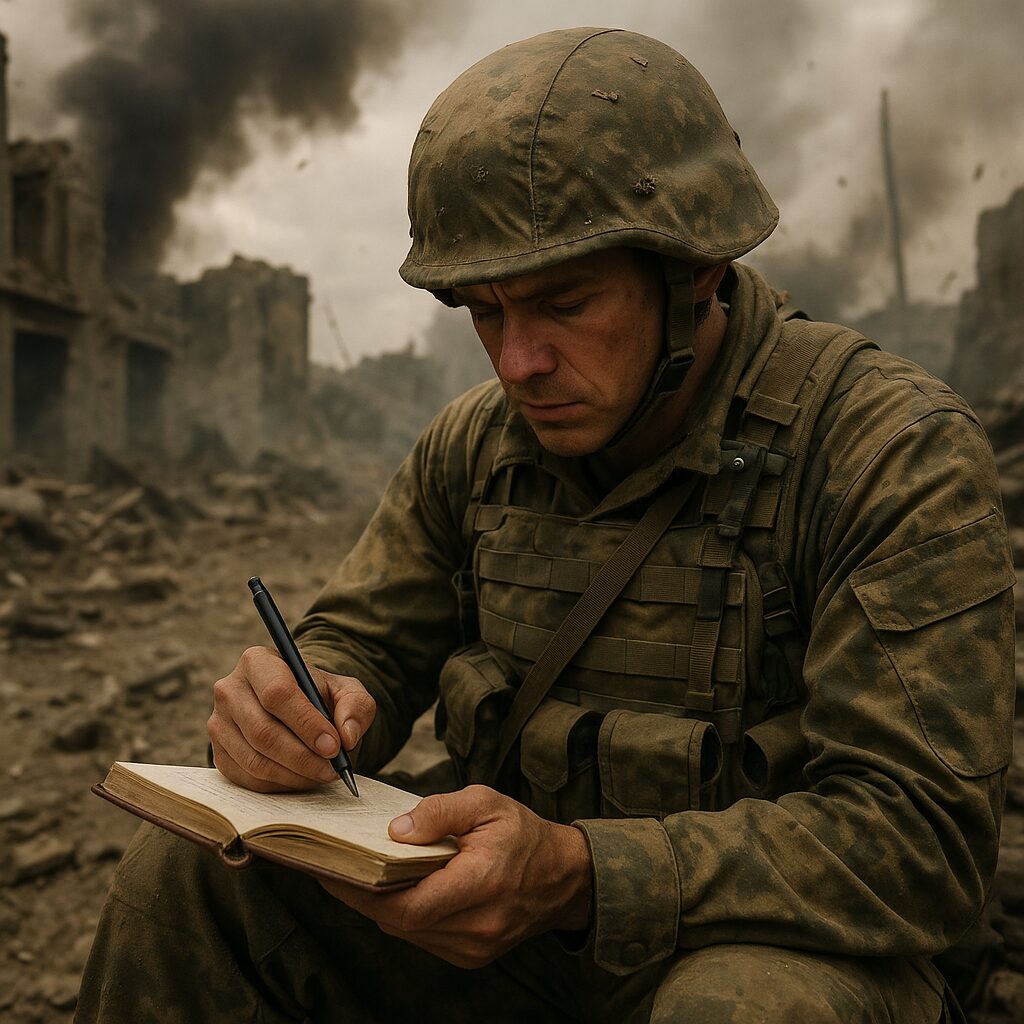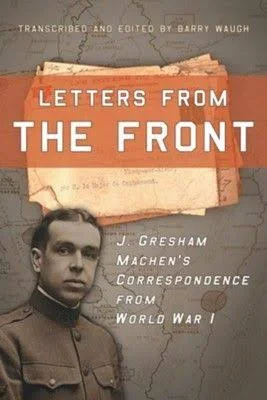By Friedrich Bargideon
Son of immigrants, keeper of maps, and chronicler of mankind’s most dangerous addiction: war.
War is often told from the perspective of those who never fought it. Politicians draft the speeches, historians draft the lessons, and the generals draft the glory. But the true story — the one that stains the earth and echoes through generations — is carried in the trembling voices of soldiers. Their words are not written in strategy or statecraft, but in exhaustion, in brotherhood, in the quiet ache of survival. Across every age I’ve walked — from the clatter of Roman shields to the static-filled radios of Kandahar — the language of the soldier remains unchanged: simple, direct, brutally honest. “We did what we had to.” It is both confession and absolution.
The frontlines are where humanity sheds its illusions. Beneath the rattle of machine guns or the hiss of arrows, the distinctions of class, creed, and nationality dissolve. A conscript in Napoleon’s army feels the same dread as a marine in Fallujah or a legionary beneath the walls of Carthage. Hunger, fear, and the need to belong — these are the currencies of the battlefield. I once listened to a Soviet tanker at Kursk whisper prayers to a God he claimed not to believe in. Decades later, I heard the same tone from an American private watching the horizon flare with tracer fire. It is the universal hymn of the doomed: a plea for meaning amid the machinery of death.
And yet, within that chaos, the soldier’s voice carries a peculiar kind of purity. Not the purity of cause — those are for leaders and poets — but of experience. A man who has seen war no longer speaks in absolutes. He knows that good and evil share a trench more often than either side admits. He has learned that the enemy bleeds the same, cries the same, dies calling the same names. These are not sentiments for history books, yet they are the truth that history forgets. When the guns fall silent, it is the soldiers who inherit the silence — and it is they who must teach the rest of us how to live with it.
If you wish to understand war, do not read the proclamations. Read the letters home — the ones never sent, the ones stained by mud and regret. Listen to the tape recordings made in the dark between battles. Hear the cadence of a man who has lost faith but not honor. These are the scriptures of the frontlines, the real testament of humanity’s endurance.
In their words, you will find no heroes — only men who kept moving forward because stopping meant death. But you will find truth. And truth, in war, is rarer than victory.
“History remembers the generals, but truth belongs to the soldier — whispered in mud, written in blood, and carried home by those who survived what words can never fully tell.”
— Friedrich Bargideon
Every war leaves behind two records — the one written by historians, and the one carried in the minds of those who fought. The former deals in numbers, dates, and borders; the latter in smells, sounds, and faces that never fade. The soldier’s narrative bridges these worlds, giving the statistics a heartbeat. Consider the diaries of the Great War — men scribbling by candlelight between barrages, their words stripped of politics, raw with fear and awe. Or the voice messages of modern soldiers, recorded in armored vehicles under the weight of desert heat, confessing the same doubts their grandfathers once penned in trench mud. Across centuries, the medium changes, but the message does not: war is personal, immediate, and human. When we listen to these voices — really listen — we begin to understand that beneath the strategies and headlines lies a shared truth: soldiers do not fight for history; they fight for each other, and their words remain the last honest account of what war truly costs.


Some might argue that soldier narratives romanticize war — that by giving voice to those who fought, we risk glorifying the struggle rather than condemning it. Yet this belief misunderstands the nature of their testimony. The soldier does not seek admiration; he seeks to be understood. His words are not propaganda but confession, the recounting of moments that defy language itself. In the field, courage and despair are often indistinguishable, and survival feels less like triumph than guilt deferred. Even the most hardened veteran will tell you that war is not a tale of valor, but of endurance — of men holding the line not for ideals, but for one another. By confronting these stories honestly, without sentiment or spectacle, we strip away the mythology of war and expose its essence: not glory, but the fragile persistence of humanity amid the ruins it creates.
Final Thoughts
War will always have its scholars and its monuments, but only the soldier gives it a soul. His story is the bridge between the horror and the hope — proof that even in mankind’s darkest hour, something decent still flickers within us. The lesson is not how to win wars more efficiently, but how to remember them truthfully. When we honor the soldier’s voice, we do not celebrate battle; we acknowledge survival, sacrifice, and the fragile thread that binds one generation to the next. So read their words. Carry their silence. Let their pain make you cautious, and their endurance make you humble. For every story told from the frontlines is a plea whispered through time — that we might learn to value peace before the next war teaches it again.
